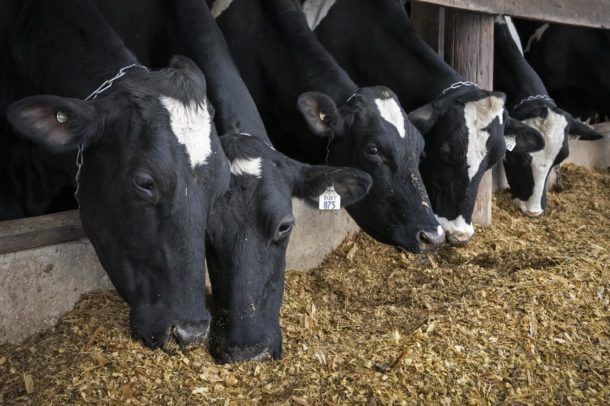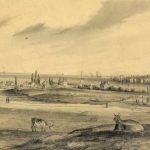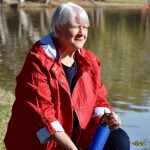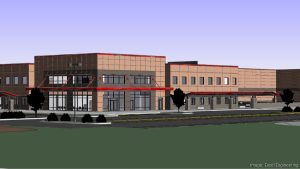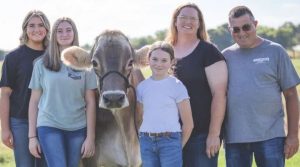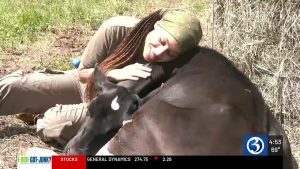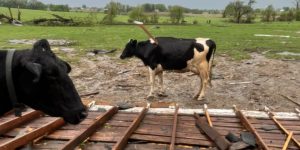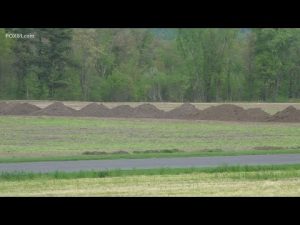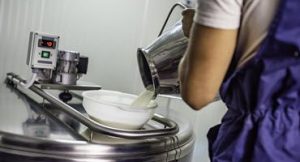
It’s a fact that when I left the farm at 18 to study journalism in Buffalo, my view on the lifestyle was quite different, but man was I a lucky kid.
We had a 50-cow dairy in Lisbon, and we didn’t have tile-drained fields or the most fertile soil in the county, but we sure could grow some rocks.
Anything bigger than your fist was plucked from earth and carried, dragged or rolled to a dump trailer or loader and hauled to the brushline. Your hands would get so dry that a desert would get jealous and you’d often be covered in mud when a breeze carried the dusty field into your sweat-soaked body.
“One more knoll,” that’s what my dad often told us as he worked alongside my brothers, cousins, neighbors and I in the fields. He was right of course, but there was also one more after that one and so on.
In those days in St. Lawrence County fellow farm kids were often friends. Sometimes you’d show up at their house hoping to escape work on your own farm only to end up doing chores with them.
Picking rocks was fairly awful work, but sometimes preferable to swinging a 12-pound post maul from the back of a moving dump trailer hammering cedar posts every 10 feet or so for what certainly felt like miles. If you missed a post, the momentum carried you swiftly, but not so gently to the ground.
That of course wasn’t so bad compared to forking corn out of a silo. You could really move some corn with an 18-pronged fork and the wondrous smell of corn silage, which was somehow worse than manure when concentrated, seemed to hang on to you link cling wrap.
Easily the most fun though, was the summer. While most kids were at the beach, you’d spend the day stacking hay bales from floor to roof in a sweltering barn or loft. It’s the kind of heat that would make the Devil sweat and was even worse if you had the misfortune of letting your skin make contact with the tin roof.
In those days kids were sublet to neighboring farms in the summer to help other struggling dairies that no longer had children at home to help share the burden. And despite all that I wouldn’t trade the experience for the world.
The bonds you built with fellow farm kids last for life. And so do the lessons learned. When I moved away I never really had a hard time getting out of bed to go to work or school, I of course knew my dad was already up and facing a much tougher day than I was.
I don’t drive by a stranded vehicle without stopping to see if help is needed. I pull over when I see farmers struggling to usher escaped cows out of the road, but admittedly I keep driving if I see a hay wagon being unloaded into a loft.
Small farms might not have been the most efficient, the most cost effective or most sustainable operations, but for those lucky enough to have grown up on one – I think we can all agree that the lessons learned on a small farm are as valuable as any college degree.
So for the generations of family farmers out there that saw the end of their family business in the last decade, please know that your legacy had an impact. You gave a lot of us the ability to push on for “one more knoll.” It’s a lesson not easily taught, but the value is immeasurable. And to those family farms out there that managed to grow to meet the new model, congrats, but please don’t call me if you need help stacking hay.
